OVERVIEW OF PROGRESS
Traditional research has struggled to uncover the root causes of ALS, distinguish subtypes, or identify drug targets. Solving ALS requires scale, integration, and collaboration—not incremental, isolated studies.
Answer ALS is meeting this challenge head-on. Through standardized evaluations of over 1,000 participants, we’ve generated thousands of patient-specific iPSC lines—a renewable, living resource that reflects the true biological diversity of ALS, as well as corresponding biosamples. These lines, biosamples, and motor neurons paired with extensive multi-omics data (genomic, transcriptomic, proteomic, epigenomics), create an unprecedented system for modeling ALS in human motor neurons.
All of this is openly available through the Neuromine Data Portal, the most comprehensive ALS research resource to date. Neuromine enables researchers to:
- Identify subtypes of ALS
- Map disrupted molecular pathways
- Pinpoint therapeutic targets
- Design smarter diagnostics and trials
And most importantly: they can do all of this without recruiting a single patient. The tools, samples, and insights are already available and waiting to be put to work.
What began as a single project has grown into a living ecosystem of science, with major core initiatives and hundreds of independent research projects worldwide fueled by our open-access data, biosamples, and iPSCs. From pharmaceutical partnerships to academic collaborations, Neuromine has become more than a data portal, but rather a launchpad for discovery.


iPSC lines accessed
What began as a single project has grown into a living ecosystem of science, with major core initiatives and hundreds of independent research projects worldwide fueled by our open-access data, biosamples, and iPSCs. From pharmaceutical partnerships to academic collaborations, Neuromine has become more than a data portal, but rather a launchpad for discovery.
What began as a single project has grown into a living ecosystem of science, with major core initiatives and hundreds of independent research projects worldwide fueled by our open-access data, biosamples, and iPSCs. From pharmaceutical partnerships to academic collaborations, Neuromine has become more than a data portal, but rather a launchpad for discovery.
Below are just some of the large scale projects and partnerships powered by our work:
 Massachusetts General Hospital
Massachusetts General Hospital
Answer ALS has banked blood and spinal fluid samples from over 1,000 participants at Mass General. These precious biospecimens, paired with the Neuromine Data Portal, give researchers matching multi-omics data—an unmatched resource to accelerate ALS discoveries.
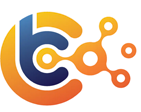 The Cedars-Sinai Biomanufacturing Center
The Cedars-Sinai Biomanufacturing Center
The Cedars-Sinai Biomanufacturing Center plays an integral role in ALS research. Blood samples from over 1,000 Answer ALS participants have been transformed into living, renewable stem cell lines. Linked with the Neuromine Data Portal, these cells, and their rich biological data, are available to researchers worldwide and have been obtained over 2000 times by mid 2025.
 AMP ALS
AMP ALS
An NIH funded long term program to connect all available ALS data in one location.
 Gates Ventures’ Alzheimer’s Disease Initiative
Gates Ventures’ Alzheimer’s Disease Initiative
The Gates Ventures Program links Neuromine to the largest trove of Alzheimer’s data in the world with critical tools and access to global researchers.
GATC Health & the Louisiana AI Drug Discovery Initiative
This program is a Louisiana state program to validate AI discovered targets using Answer ALS derived iPS cell lines and GATC’s proprietary AI to identify possible drug candidates.
 ALS Therapy Development Institute (ALS TDI)
ALS Therapy Development Institute (ALS TDI)
The data from ALS TDI has doubled available data on the Neuromine platform, and their program is ongoing, adding more rich data and making it available to researchers worldwide.
 Challenge Works Longitude prize for ALS
Challenge Works Longitude prize for ALS
This effort is A 5-year, $10 million global prize model, using AI to transform drug discovery in ALS.
 Champion Insights
Champion Insights
Champion Insights is a collaborative effort between Answer ALS, Augie’s Quest, and the ALS Therapy Development Institute. The effort is gathering data on athletes, those who served in the military, and others who have a higher incidence of ALS.
 Project Mosaic
Project Mosaic
Creating patient-specific models, Answer ALS’ multiomics data, and advanced AI to help drug makers develop precision medicines for ALS.
Project Genesis
A large-scale effort to identify the origins of sporadic ALS.
Corps of Discovery
Using IPS lines, coupled with corresponding data to determine ALS subtypes and druggable targets.
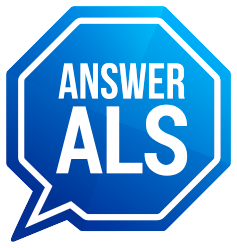

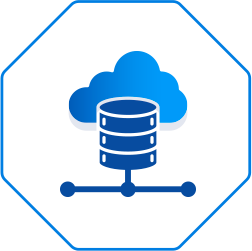 Data & Technology
Data & Technology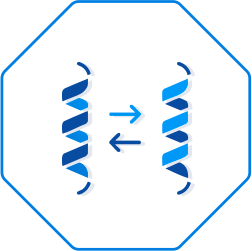 Multi-Omnics Analysis
Multi-Omnics Analysis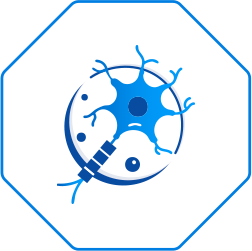 IPS Cells & Motor Neurons
IPS Cells & Motor Neurons Clinic & enrollment
Clinic & enrollment